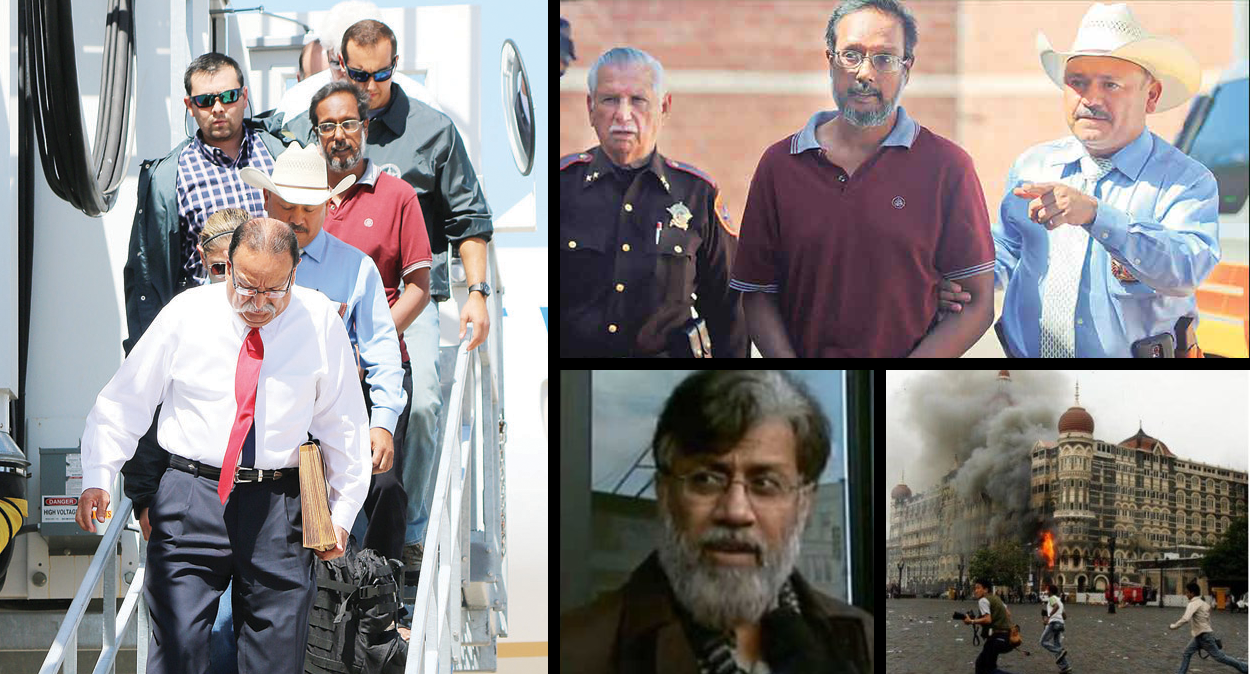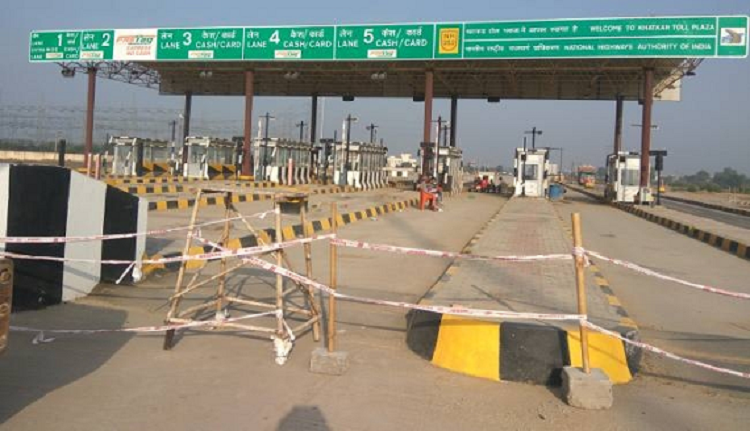
Cross Border Crime; How to penalize a foreigner abroad through Indian Court ?
I am sure, you have no clue about Sanjay Kumar, from Hyderabad and Muddamalle Amit Livingston, from US. I too have not heard about either of them.
We all know about, David Coleman Headley and Tahawwur Rana, suspects in 2008 Mumbai attacks, but the list of such fugitives hiding in US is quite long.
Out of 121 people, who fled India, after committing crimes, a majority of them are hiding in US. Nearly, about 40 in numbers, US is on the top of chart of Countries, where Indian fugitives are hiding.
The other preferred destinations of such criminals are, UK, Canada and UAE, despite India enjoying a good relation and valid extradition treaty with all the four, including US.
Before, I cross examine this heavenly abode, let me bring in Sanjay Kumar and Muddamalle Amit Livingston, who caught our attention in the beginning.
Muddamalle Amit Livingston, is one of America’s most wanted criminals, who fled US, after killing Hernandez,in 2005. Living under the false identity of 'Sanjay Kumar', Livingston worked as a medical transcriptionist in India, for over 7 years till he was not arrested by local police.
The two democratic governments with strong faith in law and in their respective constitution are too well aware of this growing menace and off late has taken various legal steps to curb it. The most important measures include, Mutual Legal Assistance Treaty in Criminal Matters ("MLAT").
As per the MLAT, India and USA 'shall provide the widest measure of mutual assistance to each other, in accordance with the provisions of this Treaty, in connection with the investigation, prosecution, prevention and suppression of offences and in proceedings related to criminal matters.'
The benefits of the MLAT have become more apparent over the years. Previously if any domestic company was found to have acted illegally in its branches or offices abroad, it would be difficult for the government to seek documents and papers relevant to the case from foreign jurisdictions. Now with the MLAT, it is easier to get this information and even extradite criminals who have fled the country. In recent years, India has made use of the MLAT investigating scams involving fugitives such as Vijay Mallya and Nirav Modi. In fact, the MLAT can be crucial in obtaining useful intel for a country being targeted by terrorists stemming from another.
Thus, the MLAT aims to curb criminal offences using the joint forces of two sovereign countries that normally would have no agreement to cooperate without such a treaty being in place.
Another key measure is US Homeland Security Presidential Directive-6 (HSPD-6). This allows India to access USA's database of 'unclassified biographic information of known and suspected terrorists' on a reciprocal basis and exchange information with the Terrorist Screening Centre (TSC), USA.
Indian Laws concerning foreign jurisdictions
In addition to above two new treaties, India deals with all civil and commercial matters involving other jurisdictions through its ministry of Law and Justice. The criminal matters are dealt by the ministry of Home Affairs.
The CPC acknowledges the power of foreign judgments and foreign courts in India. There are provisions in the code that deal with execution of decrees passed by courts in reciprocal territories along with procedure to be followed to get the same enforced in India. Further, the code also explains what presumptions exist with respect to foreign judgments and the test of its conclusiveness in the country.
As on date India has 11 reciprocal territories, with the United Arab Emirates being added to the list in January, 2020. These reciprocal arrangements between respective countries governs, service of summons, warrants and judicial processes.
In 2012, the Metropolitan Magistrate, Delhi issued 11 summonses to international websites including Facebook and Google (at their USA headquarters) making allegations of 'promoting class enmity and undermining national integrity'.
In Nimesh Harkisandas Topiwala vs Deepa Dalpatram Topiwala16 the division bench of the Bombay High Court by its order dated 5th May, 2017 discussed how an order passed by an Indian court may be enforced against a party residing in the USA.
The Bombay High Court held that since India and the USA had a MLAT in force and that the steps as set out in the MLAT must be followed to execute and enforce an Indian Court order in a foreign jurisdiction. Further, since it was a civil matter the Department of Law and Justice of the Government of India was directed to take the matter up with the Central Authority, USA. We also learn from this case that the MLAT despite having been signed for mutual assistance in criminal matters, its procedures are also applied in civil and commercial matters.
In the matter of Union of India v. Mubarak, the Hon'ble Supreme Court of India relies on the report of the Public Prosecutor concerning the criminal investigation of the accused in the matter. The concerned paragraph of the report forming part of the aforesaid judgment is as follows:
'12. It is further submitted that the NIA is conducting investigation on the social media and email communication used by the Accused and associates and the process of sending requests to the United States of America (USA) under Mutual Legal Assistance Treaty (MLAT) between Republic of India and USA to get the details of social media accounts and communications between Accused and their associates in India and abroad is under progress.'
US laws concerning foreign jurisdictions
With respect to assisting foreign and international tribunals, USA has a federal statute in that regard viz. Title 28 of the United States Code, Part V, Chapter 117. Under this statute section 1782 states that a party to a legal proceeding outside USA is allowed to apply to an American court to obtain evidence in a non-USA proceeding.
For long the use of §1728 has been ambiguous as US courts were not fully clear of its scope. However, this changed with the United States Supreme Court decision of Intel Corp. v. Advanced Micro Devices. The Supreme Court in Intel Corp. dealt with antitrust claims filed by Advanced Micro Devices against Intel before the Directorate-General for Competition of the Commission of the European Communities.
It held that as per §1782 (a)'s language, the provision authorises but does not require a federal district court to assist a complainant. Also, when an application under §1782 (a) is filed the court is free to consider the nature of the foreign tribunal, the character by which proceedings are ongoing abroad, the cooperation of the foreign government or authority towards judicial assistance. It must be noted that the matter was then remanded to the lower court and AMD ultimately lost the case against Intel. However, the Supreme Court's observations in the matter shed light on USA's laws towards foreign co-operation.
In re: Application of the Republic of Kazakhstan the United States District Court of the Southern District Court of New York discussed whether the meaning of 'interested person' as set out in section 1782 would include a sovereign state, the case was held in the affirmative. The Court stated that ”. section 1782's predecessor statutes explicitly permitted foreign states to request judicial assistance and that the 1964 amendment that added the "interested person" provision to section 1782 was intended to broaden rather than narrow "the scope of those who could seek judicial assistance."
The United States District Court for Eastern District of Pennsylvania in the matter between United States v. Fleet Mgmt. Ltd. did briefly discuss the MLAT between USA and India. The case dealt with illegal discharge of oil by a sea vessel and witness warrants were issued to sailors who were Indian citizens. The District Court considered applying the processes under the MLAT to secure the Indian witnesses for trial.
As seen from the above, USA has taken measures in its judicial system to co-operate with foreign governments. Especially with many of the world's largest companies being based in USA itself, the country understands the far-reaching consequences of actions taken by such corporates for their businesses.
Hague Convention
India and USA are also signatories to the Hague Convention, which provides that in civil and commercial matters a judicial authority of a signatory country may request the competent authority of another signatory country by a letter of request to obtain any evidence.
The Convention turns out to be useful for those signatories that have not signed MLATs between each other.
The two have also signed the 'Agreement for the Surrender of Persons to International Tribunals' dated 26th December, 2002 and the 'India-US Counter Terrorism Initiative' dated 23rd July, 2010 being other treaties related to legal matters.
The correct application of the MLAT and other legal measures will go a long way in curbing the growing menace of fugitives taking shelter in heavenly abode of US or India.
To know more on this or any other matter WhatsApp 9818320572
Dr. Ajay Kummar Pandey,
Advocate Supreme Court of India,
4C Supreme Law International, Delhi, Mumbai, Dubai
Email: editor.kumar@gmail.com
Join Telegram: https://t.me/supremelawint
Your free access to Supreme Law News has expired
For further details contact:
Dr. Ajay Kummar Pandey
( LLM, MBA, (UK), PhD, AIMA, AFAI, PHD Chamber, ICTC, PCI, FCC, DFC, PPL, MNP, BNI, ICJ (UK), WP, (UK), MLE, Harvard Square, London, CT, Blair Singer Institute, (USA), Dip. in International Crime, Leiden University, the Netherlands )
Advocate & Consultant Supreme Court of India, High Courts & Tribunals.
Delhi, Mumbai & Dubai
Tel: M- 91- 9818320572. Email: editor.kumar@gmail.com
Website:
www.supremelawnews.com
www.ajaykr.com, www.4Csupremelawint.com
Facebook: /4Clawfirm, /legalajay Linkedin: /ajaykumarpandey1 Twitter: /editorkumar / YouTube: c/4cSupremeLaw Insta: /editor.kumarg
Telegram Channel
Whatsup Channel











